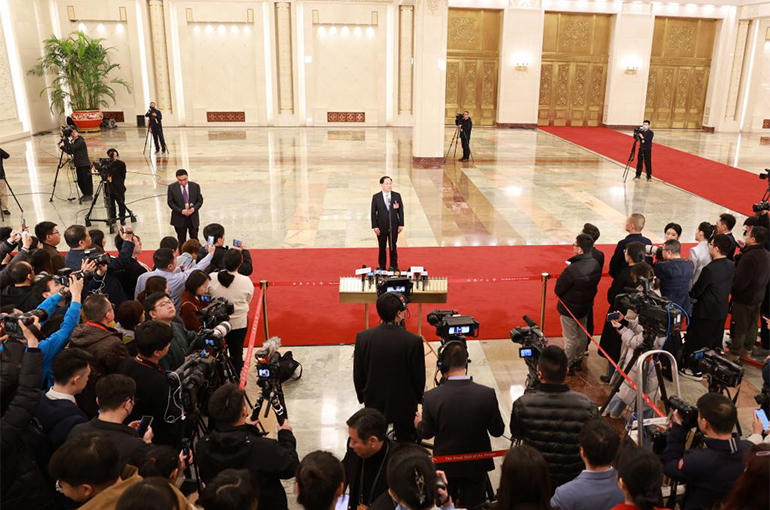 China to Open Up Internet Data Hubs, Other Telecoms Services to Foreign Investment, Minister Says
China to Open Up Internet Data Hubs, Other Telecoms Services to Foreign Investment, Minister Says(Yicai) March 8 -- China will lift all restrictions on foreign investment in its manufacturing sector this year and is also preparing to pilot the opening-up of its value-added telecommunications services, such as Internet data hubs, to overseas investment as part of the country’s new-style industrialization, the minister of industry and information technology said today.
New-style industrialization calls for the further deepening of reforms and opening-up, a distinctive feature of which is the in-depth integration of informatization and industrialization, Jin Zhuanglong said.
China should focus on consolidating and improving the competitive advantages and leading status it has in the information and telecommunications sector and construct facilities for the fifth-generation mobile network and computing power in a timely manner, he said.
The government should continue to promote the large-scale application of the Industrial Internet and the evolution of existing 5G mobile technologies, Jin said. There should also be more investment in the research and development of 6G technologies.
Digitization, “Internetization” and intelligentization of the manufacturing sector should also be spurred. The manufacturing sector’s digital transformation should be carried out by category. The “artificial intelligence plus” action plan should also be implemented, so that AI can drive the new-style industrialization, he added.
China has cultivated 124,000 small and medium-sized firms that use sophisticated technologies to produce novel and unique products, which are playing an important role in local industrial chains.
Next, the MIIT needs to digitally empower these SMEs and further their digital transformation. The country will support the digital transformations of over 40,000 small and medium-sized firms over the next three years, Jin said.
Second, the country is to fully implement the law to promote SMEs and to provide them with guarantees for payments, energy, human resources and land.
Third, China will continue to perfect its service systems for SMEs and make the most of SMEs’ development funds to support them in innovation, creation as well as starting out, Jin said.
Lastly, China will get many SMEs involved in the growth of major industrial chains. The government will set up a platform to develop small, medium and large companies in an integrated way, said Jin. Earlier this year, Jin said that China will build another 100 SME industrial clusters, on top of the 200 such hubs that already exist.
Editor: Kim Taylor